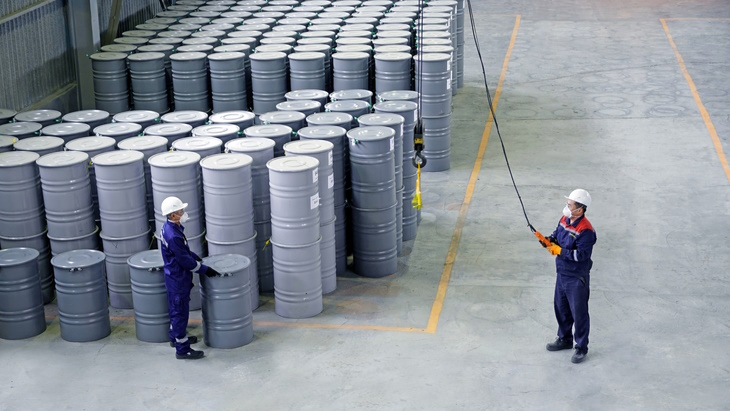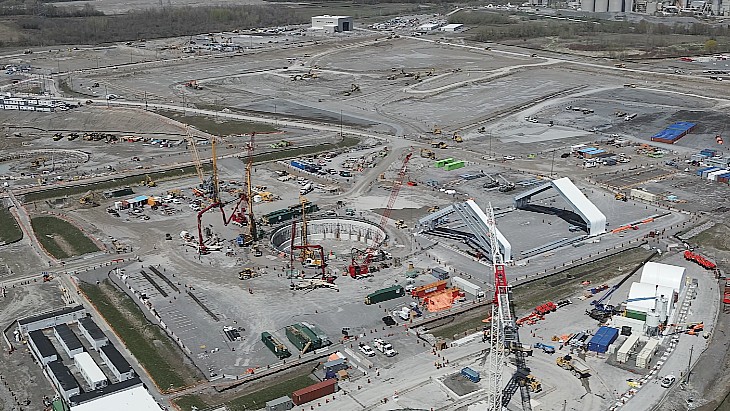Kazakh U delivered to Romania as processing plant readies to start

Kazatomprom said it won an open tender for the supply of natural uranium oxide "for the needs of Romania's nuclear power industry" in December 2022 and has delivered the material in accordance with the terms of that contract. "Kazatomprom exported its products via the Trans-Caspian International Transport Route (Middle Corridor), which has been actively used by the company since 2018," it added.
The Trans-Caspian International Transport Route passes through Azerbaijan and Georgia and on to the Black Sea without entering Russian territory. It was first developed in 2018 to mitigate the risk should Kazatomprom's usual west-bound shipment route via St Petersburg be unavailable. Kazatomprom last year said it was looking to increase the quota limit on shipments via the Trans-Caspian route, although it had not encountered any disruptions or logistical/insurance-related issues on the St Petersburg route.
"Kazatomprom, as a reliable and preferred supplier on the global nuclear fuel market, will continue to diversify the geography of supplies and enter new markets," the company said.
Cernavoda's two Candu reactors generate about 20% of Romania's electricity. Fuel for the plant is fabricated by Nuclearelectrica subsidiary Fabrica de Combustibil Nuclear (FCN) at its fuel plant at Pitesti. The Romanian national nuclear company agreed in 2021 to purchase the uranium processing line assets of Compania Nationala a Uraniului (CNU) at Feldioara as part of a plan to develop a Romanian integrated fuel cycle.
Nuclearelectrica completed the acquisition of the technical uranium concentrate processing stream from CNU's Feldioara subsidiary in late December 2022 and leased the relevant assets to its FPCU Feldioara subsidiary. During the first three months of this year, it has been working to authorise the production process and prepare the facilities at Feldioara for the start of processing. The contract with Kazatomprom was signed at the same time as this "operationalisation" so that the contracted quantities would be delivered in time for the start of production.
With EUR12 billion-worth (USD13 billion) of investment projects over the next decade, Nuclearelectrica is aiming to consolidate its nuclear capabilities and provide Romania with "full investment capacity," according to CEO Cosmin Ghita.
"The strategic decision to acquire part of Feldioara's assets necessary for the processing of the raw material was aimed at preserving and developing the Romanian integrated nuclear fuel cycle, the integrated production capabilities in SNN (Nuclearelectrica) and, to an equal extent, ensuring the production of fuel bundles and the optimal operation of NFP Pitesti and Cernavoda NPP, in the context of expanding the capacity of the nuclear power plant, at an advantageous transaction cost," Ghita said.
The company plans to refurbish the older of Cernavoda's two units, complete a further two units planned at the site and to develop small modular reactors in cooperation with US company NuScale. "The completion of these projects requires solid nuclear fuel cycle infrastructure and are all overarched by SNN's mission to reenergize Romania with clean energy beyond the 2030s," he said.
_77790.png)
_59102.jpg)
_49833.jpg)








